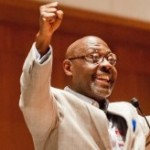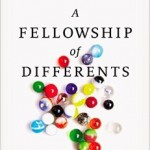
Over the next couple of weeks, we will be sharing a number of stories of churches whose life together embodies some facet of Slow Church. We hope these stories will stretch your imagination about what a Slow Church looks like.
Previous Story: Vineyard Central (Norwood, OH)
First Christian Church
Erwin, TN
*** Check out SLOW CHURCH on the Patheos Book Club…
Written by Todd Edmondson, pastor of FCC.
Among the many ways that the modern church experiences fragmentation and brokenness, the split between generations is a rift that it seems most congregations are content to tolerate. However, this sort of intergenerational division can be subtly destructive to a church’s life together. Sometimes this manifests itself in a sort of stalemate mentality, with the older folks digging in against the younger members of a congregation, so that any movement forward is impeded. At other times, this division results in the younger people in a congregation hijacking the church’s decision-making process, pursuing the “next big thing,” and neglecting to pay attention to the insights and the experiences of the older saints among them. Usually, I suspect that this intergenerational rift is simply revealed as a general impatience with one another, a refusal to work together, to understand one another, and (increasingly, with the contemporary/traditional music split) even to worship together. I’m not going to use this space to tell a story or stories about a specific project, initiative, or even a specific event that characterizes the journey of First Christian Church in Erwin. Like so many churches, our story is still being written, and I’d be lying if I said I was certain about what the next page, much less the next chapter, is going to look like. I will say that I am hopeful about the future of the congregation for a number of reasons, but especially because of what I’ll call “Intergenerational Hospitality,” a real desire and a regular practice among the congregation’s members to share life together across the generational divide.
Demographically speaking, First Christian Church is somewhat unique. In my experience, both as a pastor and as a church member, many if not most churches have a strong core of members in a sort of middle-age range, from 40-60 years old. These people do much of the work, contribute the most financially, occupy most of the positions of leadership, and supply the teenagers for the youth group. FCC Erwin, for a number of reasons, has lost most of those members over the past 10 years or so. Aside from a handful of people in the middle range (who do contribute much), the congregation is made up largely of two groups: a number of older members, 70 years and above, and a wave of younger members, 36-38 years and below, with younger children. Without a large, solid group in the middle to mediate, this could be an intergenerational rift waiting to happen. But at FCC, I’ve found just the opposite: older members willing to contribute their wisdom, their maturity, their prayers, and their support to the work of the church, without demanding that their seniority gives them the right to make all the decisions. Younger people truly valuing what the older members bring to the table—not just paying lip service to some theory about honoring their elders, but actually learning from them, listening to them, working and worshiping beside them.
In my brief time with this congregation so far, I have been able to witness an enthusiasm on the part of the older members about what God is doing through the younger people as the church seeks to engage our neighborhood and our world, not to mention a certain amount of patience with all the crying babies that have recently begun filling the nursery and, occasionally, our worship services. I have also witnessed a genuine respect on the part of our younger members towards those who have led this congregation for so many years. All of this seems to spring not from some pragmatic, “grow or die” mentality, but from a real affection that the members of this congregation have for one another, and as a pastor I can say that it is one of the most exciting and life-giving parts of my work. It reminds me that the church can be a unique and peculiar kind of community, where some of the divisions that threaten to come between us don’t have to shape us, but rather can be overcome by a commitment to a deeper life together, oriented toward the kingdom rather than toward our desires or comforts. While I don’t know for sure where God is leading this special group of people, I’m looking forward to learning more with them as we grow together.












